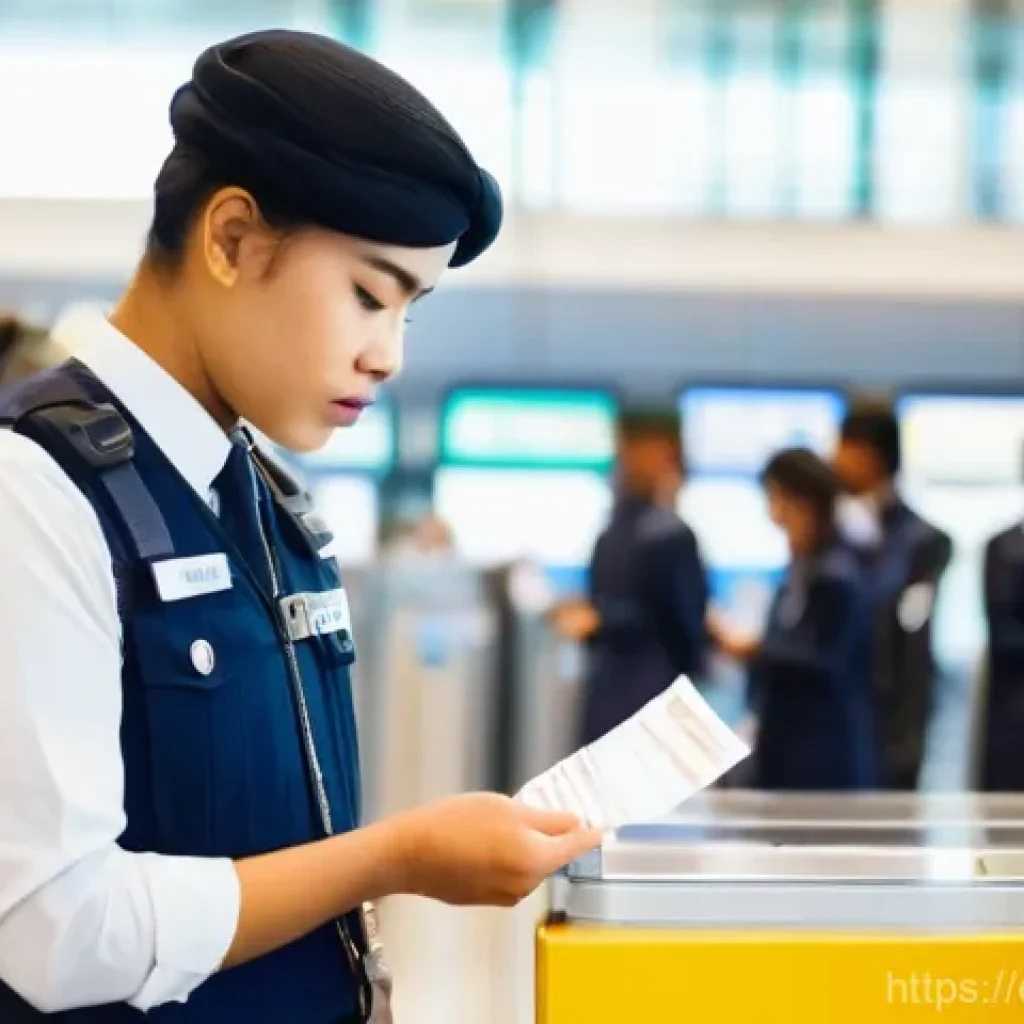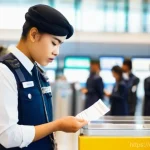Hey there, fellow globetrotters! As someone who absolutely lives for exploring new corners of the world, I know that thrill of picking up unique finds or incredible deals in a duty-free shop.
But let’s be honest, that momentary joy can quickly turn into a headache if you’re not savvy about the ever-changing customs regulations and personal allowances.
Trust me, I’ve seen it all, from travelers excitedly grabbing a bottle of their favorite spirit only to face unexpected duties at their destination, to missing out on fantastic savings because they weren’t aware of the current limits.
It’s a common misconception that “duty-free” means completely tax-free upon arrival, and with global policies constantly shifting—like some major recent changes impacting online imports to the US—staying informed is more crucial than ever.
No one wants their amazing trip to end with a surprise customs bill, right? Navigating these rules can feel like cracking a secret code, but it doesn’t have to be intimidating.
I’m here to help you unlock those savings and avoid any travel hiccups, ensuring your duty-free experience is as smooth as your flight. Let’s dive deeper and get you fully prepared for your next international adventure!
Understanding the “Duty-Free” Magic: It’s Not Always What You Think

The Real Meaning Behind Tax-Free Shopping
Let’s cut right to it, because I’ve seen so many eager travelers get this wrong, and honestly, I used to be a bit confused too! When you see those sparkling duty-free shops at the airport, it feels like a free pass to shop without any taxes, right?
Well, not exactly. “Duty-free” truly means you’re exempt from local taxes and duties in the country where you *buy* the item, because the goods are intended for export.
Think of it as a perk for international travelers, allowing you to snag items without paying the sales tax, VAT, or excise duties that locals would pay.
But here’s the kicker, and this is where many people stumble: those items aren’t necessarily “tax-free” once you bring them into *your own* country. Your home country still has its own customs regulations, and depending on the item’s value and quantity, you might still owe duties and taxes upon arrival.
It’s a common misconception that causes headaches for countless travelers, myself included, who thought they had a fantastic deal only to be hit with an unexpected bill at customs.
The crucial thing to remember is that you’re essentially buying products that are legally exported and then *imported* into your destination country under its specific tax rules.
Why Comparing Prices is Your Secret Weapon
Just because something is labeled “duty-free” doesn’t automatically mean it’s the absolute best deal. This is a mistake I learned the hard way with a “bargain” perfume that I later found cheaper online back home!
While alcohol, tobacco, and luxury items often present genuine savings because they carry high local taxes, other items like electronics, snacks, or even some fragrances might be priced higher than you’d find in a regular store or online sales.
It’s all about the local market rates and exchange rates playing their part. My personal strategy now is to do a quick price check on my phone before I commit.
A minute of research can save you a bundle and prevent that “oh no” feeling later. You’d be surprised how often a quick Google search reveals better prices for certain items, even with taxes included, than the airport’s “duty-free” offering.
Don’t let the allure of a shiny display distract you from being a smart shopper!
Navigating Your Allowances: The Golden Rules of Importing
Understanding Personal Exemptions for Your Home Country
Every country has specific limits on how much you can bring back without paying duties. These are called personal exemptions, and they’re your best friend for avoiding unexpected fees.
For example, if you’re returning to the US, a returning resident is generally allowed a duty-free personal exemption of $800 every 31 days, provided they’ve been out of the country for at least 48 hours.
But for any goods valued between $800 and $1,800, you’ll typically face a flat duty rate of 4%. Over in the UK, travelers can bring in goods up to a value of £390 without incurring tax or duty.
Canada offers a generous CAD$800 exemption if you’ve been away for 48 hours or more, though alcohol and tobacco have separate rules within that. And if you’re heading back to Australia, most personal effects are fine, but there are specific limits on general goods for duty-free entry.
These allowances aren’t just arbitrary numbers; they’re designed to help manage imports and ensure fair taxation. It’s absolutely essential to know these numbers *before* you shop, especially if you’re eyeing a high-value item like a new watch or designer bag.
I’ve heard too many stories of friends getting caught out, thinking they were clear only to find their dream purchase suddenly much more expensive.
Alcohol, Tobacco, and the Age Factor
When it comes to alcohol and tobacco, things get even more specific. These items are often subject to excise taxes, which are distinct from general sales taxes, making them prime candidates for duty-free savings—but only within limits.
For US residents, you can generally bring back one liter of alcohol duty-free, as long as you’re 21 or older. Interestingly, some Caribbean countries have higher allowances.
In the UK, you’re looking at generous allowances like 42 liters of beer, 18 liters of still wine, and either 4 liters of spirits or 9 liters of fortified/sparkling wine.
Canada’s rules are 1.5 liters of wine, 1.14 liters of spirits, or 8.5 liters of beer. Australia allows 2.25 liters of alcoholic drinks for those 18 and over.
For tobacco, it’s 200 cigarettes or 100 cigarillos or 50 cigars or 250g of tobacco for the UK. In the US, it’s 200 cigarettes and 100 cigars within your $800 exemption.
Canada permits 200 cigarettes, 50 cigars, 200g of manufactured tobacco, and 200 tobacco sticks. Australia has a stricter limit of 25g of tobacco, including any cigarettes or cigars.
Always, always remember the legal drinking and smoking age of your destination and home country. Buying duty-free alcohol when you’re under 21 for your US return flight is a guaranteed way to have it confiscated, no matter where you bought it!
Smart Shopping Tactics: Maximizing Your Savings
Combining Allowances and Keeping Receipts
Here’s a pro tip that many travelers overlook: if you’re traveling with family or as a household, some countries allow you to combine your individual duty-free exemptions.
For instance, in the US, families can often pool their $800 exemptions for a joint declaration, even including children and infants. This can be a game-changer when you’re eying a larger purchase!
However, this isn’t universally true, so always check the specific rules for your destination country. I’ve personally found this incredibly useful on trips with my husband, allowing us to bring back a slightly more expensive souvenir without the extra fees.
And speaking of being smart, keep *all* your receipts! Seriously, every single one. Customs officials will often ask for them to verify the value of your purchases, including duty-free items and gifts.
Having them organized and ready saves you time and stress, and it proves you’re being honest. It’s a small habit that makes a huge difference in clearing customs smoothly.
What to Buy (and What to Avoid) in Duty-Free
From my countless trips, I’ve developed a pretty good sense of what’s worth snagging at duty-free and what’s better left on the shelf. As I mentioned, liquor and tobacco are often excellent deals due to their high excise taxes in most places.
Think about those bottles of premium spirits or unique local liqueurs you can’t easily find back home. Luxury goods, especially if they’re not frequently discounted at home, can also offer significant savings.
But be wary of everyday items. Things like snacks, over-the-counter medicines, and even standard electronics often come with inflated airport prices, making them more expensive than what you’d find at a regular retail store or online.
And don’t even get me started on bottled water at airports – bring an empty reusable bottle and fill it up after security! The key is to be informed and not get swept up in the excitement of the “duty-free” label.
The Declaration Dilemma: Honesty is Your Best Bet
Why You Must Declare Everything
This is perhaps the most crucial advice I can give any international traveler: declare *everything* you’ve purchased abroad, even those “duty-free” items.
Many people mistakenly believe that since an item was bought duty-free, it doesn’t need to be declared. This is absolutely false. You need to declare every item you didn’t have with you when you left for your trip.
This includes gifts you bought for others, gifts for yourself, and any merchandise you intend to sell. Customs officers aren’t trying to trick you; they’re upholding their country’s laws.
When I return home, I always have my declaration form filled out completely and my receipts ready. It makes the process so much faster and stress-free.
Trust me, a few extra dollars in duty is far better than the consequences of not declaring.
Consequences of Non-Declaration: It’s Not Worth the Risk
The thought of paying a little extra in duties might tempt some to “forget” to declare an item. Please, for your own sake, resist this urge! The penalties for false or incomplete declarations can be severe, ranging from hefty fines that can be thousands of dollars to the confiscation of your goods.
And it’s not just about money; I’ve heard of travelers having their Global Entry privileges revoked or being flagged in the system, leading to mandatory baggage inspections every single time they re-enter the country.
Imagine starting every trip home with that kind of hassle! It’s simply not worth the risk. Customs officials are incredibly good at spotting inconsistencies, and with advanced scanning technology and data analysis, it’s becoming harder and harder to slip anything past them.
Be open, be honest, and you’ll typically find customs officials to be helpful and understanding, even if you do owe a small amount of duty.
Avoiding Common Traps and Hassles

Understanding Prohibited and Restricted Items
Beyond monetary limits, every country has a list of items that are either restricted (meaning you need special permits or certain conditions apply) or outright prohibited.
This is often where things like certain food products, plants, animal products, and even some medications can get you into trouble. For example, Australia has notoriously strict biosecurity regulations to protect its unique environment, so fresh fruits, vegetables, and many animal products are a big no-go.
The US is also very cautious about bringing in certain foods due to concerns about pests and diseases. Always check your destination country’s customs website before you pack, especially if you’re planning to bring back exotic snacks or agricultural products.
I once saw someone lose a beautiful, hand-carved wooden item because it was made from a prohibited wood species – a heartbreaking mistake that could have been avoided with a quick check online.
The Dreaded Liquids Rule and Smart Packing
Ah, the liquids rule! This one has tripped up more travelers than I can count. While duty-free shops often provide sealed, airport-approved bags for liquids like alcohol or perfume, don’t assume this guarantees a smooth ride if you have a connecting flight.
If you’re flying back to the US with a layover, especially if you have to re-check your bags for a domestic leg, you’ll likely need to transfer any duty-free liquids into your *checked luggage*.
I witnessed a traveler once having to abandon several expensive bottles of wine because they didn’t realize they couldn’t take them in their carry-on through the domestic security checkpoint, and their checked bag was already gone.
It was a truly unfortunate situation. Always ask the duty-free staff about packing rules for your *entire* journey, not just the first flight. They are usually quite knowledgeable and can advise on how best to pack your purchases to avoid any issues at security checkpoints.
Staying Ahead of the Curve: Regulations Change
The Dynamic Nature of Customs Rules
Just like fashion trends, customs regulations are not set in stone. They can, and do, change. We’ve seen significant shifts recently, like the US eliminating the de minimis threshold for certain online imports (though the personal exemption for returning residents remains for now).
Geopolitical shifts, trade agreements, and even health concerns can all impact what you can bring across borders and how much it might cost you. Keeping up-to-date might sound like a chore, but it’s a vital part of being a responsible and savvy traveler.
I make it a habit to do a quick check on the official government customs websites of my destination and home countries a few weeks before any international trip.
It only takes a few minutes, but it can save you hours of hassle or hundreds of dollars. Think of it as part of your pre-travel checklist, right alongside packing your passport!
Leveraging Official Resources and Smart Travel Tools
In this digital age, there’s no excuse for being uninformed. Governments provide official customs websites (like US Customs and Border Protection, HMRC for the UK, CBSA for Canada, and the Australian Border Force) that are brimming with the latest information.
These sites are your most reliable source for accurate, up-to-the-minute regulations on everything from alcohol limits to prohibited food items. Don’t rely solely on outdated travel forums or anecdotal advice – go straight to the source!
Many even have online tools or FAQs specifically for travelers. If you’re ever in doubt about a specific item, declaring it and asking a customs officer is always the safest bet.
They’re there to help you, not hinder your journey, as long as you’re upfront and honest. I’ve found that a simple “I’m not sure if this is allowed, but I want to declare it” goes a long way.
| Country | General Goods Allowance | Alcohol Allowance (Age 21+ for US, 18+ for others) | Tobacco Allowance (Age 21+ for US, 18+ for others) | Key Considerations |
|---|---|---|---|---|
| United States | $800 USD (after 48hr absence) | 1 liter | 200 cigarettes, 100 cigars (within $800 exemption) | Exemptions apply every 31 days. Higher allowances from certain Caribbean countries. Goods between $800-$1800 USD subject to 4% duty. |
| United Kingdom | £390 GBP | 42L beer, 18L still wine, AND 4L spirits (>22% ABV) OR 9L fortified/sparkling wine (<22% ABV) | 200 cigarettes OR 100 cigarillos OR 50 cigars OR 250g tobacco OR 200 heated tobacco sticks (can be split) | Allowances for Great Britain (England, Wales, Scotland). Rules differ slightly for Northern Ireland. |
| Canada | CAN$800 (after 48hr absence); CAN$200 (24-48hr absence, excludes alcohol/tobacco) | 1.5L wine OR 1.14L spirits OR 8.5L beer (approx. 24x355ml cans) | 200 cigarettes, 50 cigars, 200g manufactured tobacco, 200 tobacco sticks | Must have goods with you for $800 exemption. Tobacco products may be subject to special duty if not excise stamped “DUTY PAID CANADA DROIT ACQUITTÉ”. |
| Australia | Most personal items duty-free; limited general goods. | 2.25 liters alcoholic drinks | 25g of tobacco (includes cigarettes and cigars) | Strict biosecurity rules apply to food, plant, and animal products. Always declare if unsure. |
Unexpected Hurdles: When Things Go Sideways
When You Accidentally Exceed Your Limits
It happens to the best of us: you get a little carried away, find an amazing deal, and suddenly realize you’ve bought more than your allowance permits.
I once bought a gorgeous set of local crafts, only to realize at the airport that I’d easily gone over my general goods limit. My heart sank! But here’s the thing – panicking won’t help.
If you find yourself in this situation, the absolute best course of action is to be proactive and declare everything. The customs officer will then calculate the duties and taxes you owe on the excess.
While it might sting a little to pay extra, it’s a far better outcome than facing penalties for non-declaration. Most officers appreciate honesty, and paying a small duty is usually a smooth process.
They are human, after all, and understand that mistakes happen.
Dealing with Seizures and Fines: A Harsh Reality
Unfortunately, not everyone is as honest or lucky. I’ve heard cautionary tales, and even seen it firsthand, where travelers have had goods seized or faced significant fines because they tried to smuggle items or made false declarations.
Imagine having a beloved souvenir, or worse, expensive alcohol, taken away from you because you tried to avoid a small fee. In Canada, for example, failing to declare or making a false declaration can lead to goods being seized and fines ranging from 25% to 80% of the value of the seized goods, and often these goods, especially tobacco and alcohol, won’t be returned.
It’s a stark reminder that customs rules are serious business. This isn’t just about saving a few bucks; it’s about respecting international laws and ensuring a pleasant, stress-free re-entry into your home country.
My advice? Always, always err on the side of caution. If in doubt, declare it.
Wrapping Things Up
Whew, that was quite a journey through the world of duty-free and customs, wasn’t it? My hope is that by sharing my experiences and digging into the nitty-gritty, you feel a whole lot more confident about navigating your next international trip. It’s so easy to get caught up in the excitement of travel, but a little bit of knowledge and preparation can truly make all the difference between a smooth re-entry and an unexpected headache. Remember, the magic of duty-free isn’t just about saving a few bucks; it’s about being an informed, savvy traveler who respects the rules and makes the most of every adventure. So, go forth and shop smart, my friends!
Handy Tips for Your Next Trip
1. Always double-check the official customs websites for both your destination and your home country before you even start packing. Regulations can change, and what was true last year might be different this year. A quick search for “US customs allowance” or “UK duty-free limits” can save you a world of trouble and make you feel totally prepared. It’s like having a secret weapon in your travel arsenal!
2. Don’t fall for the “duty-free” label blindly! My advice is always to whip out your phone for a quick price comparison. You’d be surprised how often a regular store or online retailer at home, even with taxes, might offer a better deal on certain items than the airport shops. I learned this the hard way, and now it’s a non-negotiable part of my shopping strategy.
3. Keep every single receipt, neatly organized, for all your purchases made abroad – yes, even the tiny ones! Customs officials might ask for them, and having everything ready makes the process so much faster and less stressful. It shows you’re an honest and organized traveler, which can go a long way.
4. Declare absolutely everything you’re bringing back into your home country that wasn’t with you when you left. It might feel like a hassle, but honesty truly is the best policy here. The potential penalties for not declaring far outweigh any small duty you might have to pay.
5. Be extra vigilant about prohibited and restricted items, especially when it comes to food, plants, or animal products. Countries like Australia have incredibly strict biosecurity laws for very good reasons. If you’re unsure, declare it and let the customs officer decide. Better safe than sorry, especially when you consider potential fines or confiscation of beloved items.
Key Takeaways
Ultimately, navigating the world of duty-free and customs boils down to a few essential truths: Always declare all your purchases, no exceptions. Be keenly aware of your home country’s specific allowances for general goods, alcohol, and tobacco, as these are your golden tickets to stress-free re-entry. Prioritize doing your homework on regulations and comparative shopping *before* you get to the airport. And remember, honesty with customs officials is not just about avoiding penalties; it’s about ensuring a smooth, pleasant return home after a fantastic trip. Travel smart, stay informed, and enjoy those duty-free perks responsibly!
Frequently Asked Questions (FAQ) 📖
Q: What does “duty-free” actually mean, and does it guarantee I won’t pay taxes when I get home?
A: Oh, this is such a classic question, and honestly, I used to think “duty-free” meant “free and clear, no matter what!” Boy, was I wrong! It’s a common misconception, and it’s super important to clear up because it can save you a real headache and some unexpected cash.
So, at its core, “duty-free” simply means you’re exempt from local taxes—like sales tax, VAT (Value Added Tax), or import duties—in the country where you bought the item.
Think of it this way: because you’re an international traveler and you’re taking that item out of their country, they’re not going to charge you their domestic taxes on it.
That’s why you often find duty-free shops in airports, international waters, or border crossings—you’re technically in a kind of “no-man’s land” for local taxation.
However, and this is where many people get tripped up, being duty-free in the country of purchase absolutely does not mean it’s duty-free when you bring it back into your home country.
Your own country still has its rules about what you can import without paying additional taxes or duties. Every country sets a “personal allowance,” which is the total value of goods you can bring back without incurring extra fees.
If your duty-free purchases push you over that allowance, you’ll need to declare them and pay the applicable duties and taxes upon arrival. Trust me, I’ve seen travelers excitedly grabbing a bottle of their favorite spirit only to face unexpected duties at their destination.
So, while you save money upfront, always remember to factor in your destination’s customs limits!
Q: What are the typical limits for alcohol and tobacco, and what happens if I go over them?
A: Raise your hand if you’ve ever thought about stocking up on some amazing local wine or a box of cigars from a duty-free shop! It’s a natural thing to do, as these items often offer the biggest savings because they usually carry the highest taxes.
But here’s the rub: alcohol and tobacco are almost always subject to the strictest limits, and these vary wildly depending on where you’re coming from and where you’re going.
For example, if you’re returning to the US, typically, you can bring in one liter of alcoholic beverage for personal use, provided you’re 21 or older.
For tobacco, it’s usually 200 cigarettes and 100 cigars. Over in the UK, if you’re arriving in Great Britain, you’re looking at 42 liters of beer, 18 liters of still wine, and you can split allowances for spirits (1 liter) or fortified wine (2 liters).
For tobacco, it’s 200 cigarettes or 50 cigars. Canada also has its own system, often linked to how long you’ve been away, allowing varying amounts like 1.14 liters of liquor or 1.5 liters of wine, and 200 cigarettes or 50 cigars, usually after being away for 48 hours or more.
Now, what happens if you go over these limits? Well, it’s not a “free pass” just because you bought it duty-free. If you exceed your personal allowance, you must declare the excess.
Failure to declare can lead to fines, penalties, and even confiscation of your goods. I’ve seen friends get caught out, and it’s never a pleasant experience.
You’ll typically pay duties and taxes on the amount exceeding your allowance. Sometimes, these charges can actually erase any savings you thought you were getting.
So, my advice? Always check the latest customs regulations for your specific destination before you travel, and if in doubt, declare it! It’s always better to be honest than to face a hefty fine or lose your purchases.
Q: I found an amazing deal on a designer bag (or other high-value item)! How do I make sure I don’t get hit with huge customs fees when I bring it back?
A: Oh, I totally get that rush when you spot a fantastic deal on a high-value item abroad, especially a gorgeous designer bag! It feels like destiny, doesn’t it?
But before you swipe that card, let’s talk strategy to avoid any nasty surprises when you get home. This is where knowing your personal exemption limits becomes your superpower.
Even if that beautiful bag is “duty-free” where you bought it, it still counts toward the total value of goods you can bring into your home country without paying extra duties.
The golden rule, folks, is to always declare everything. I know it sounds simple, but a surprising number of travelers try to “sneak” items through, believing “nobody checks.” Trust me, they do!
Each country has a general merchandise allowance. For instance, US residents typically get an $800 exemption if they’ve been out of the country for 48 hours or more.
If your designer bag pushes you over that, you’ll generally pay a flat rate duty on the amount above your exemption, usually around 3-4% up to a certain value, and then higher rates after that.
Similarly, Canada has an $800 CAD exemption for trips over 48 hours, and the UK also has personal allowances for general goods. My top tips for a smooth customs experience with your luxury finds:
1.
Keep those receipts! You’ll need proof of purchase and value, so don’t toss them. 2.
Know your limits! Before you even leave, quickly look up your country’s personal exemption for general merchandise. These limits can change, so always check the latest info.
3. Declare honestly! When filling out your customs form, be transparent about the value of all your purchases, including that fabulous bag.
It might seem daunting, but it’s way better than facing fines or having your item seized. Remember, customs officers are usually understanding if you’re upfront, even if you owe a little duty.
What they don’t appreciate is deception. 4. Personal Use vs.
Commercial: Make sure your purchases are genuinely for personal use or gifts. Bringing in multiple identical high-value items can look like commercial importation, which has different rules and higher duties.
Following these steps will ensure your amazing find remains a joyful memory, not a costly customs ordeal!






